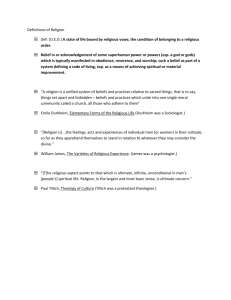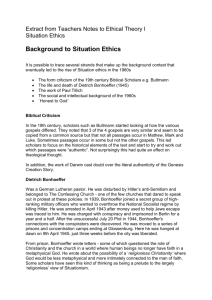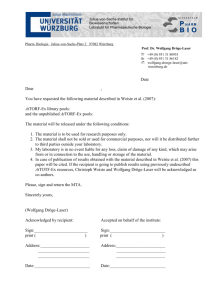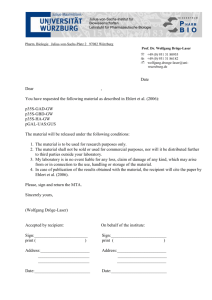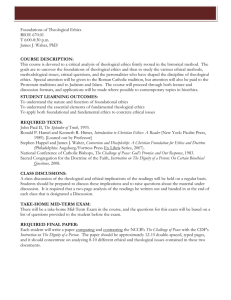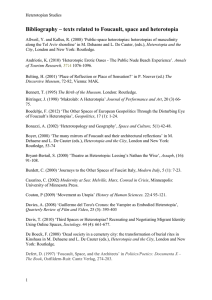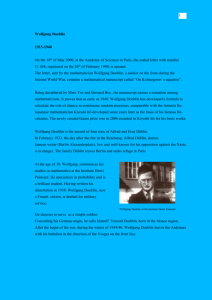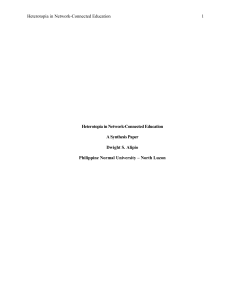Ethics in-between – Ethics in a heterotopian world
advertisement
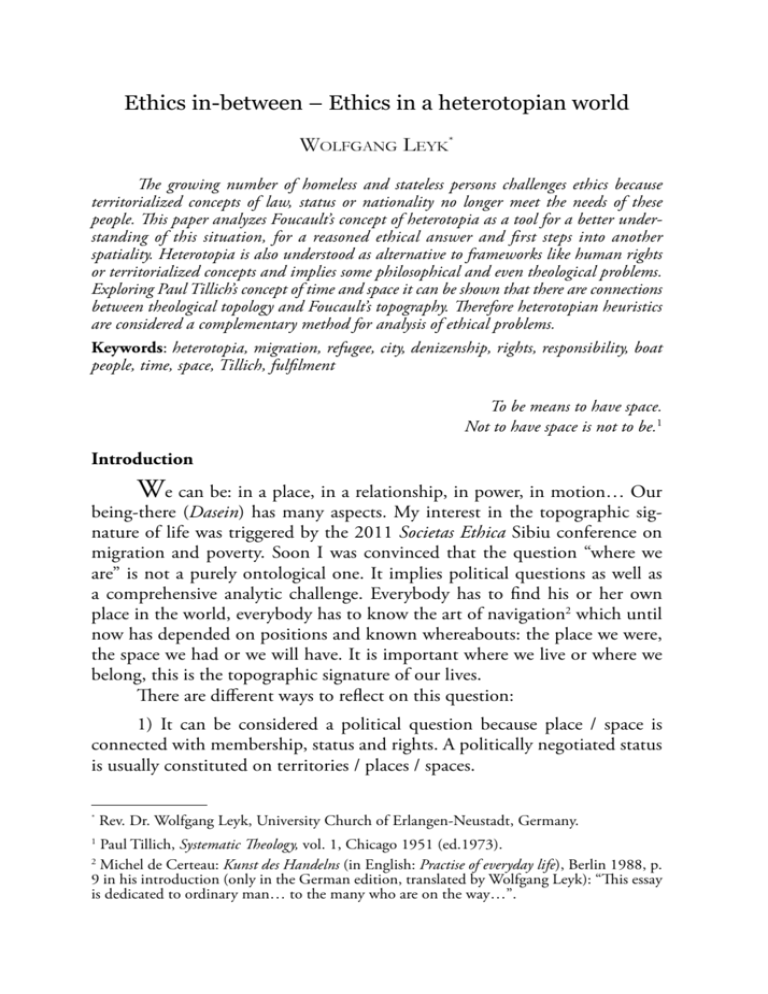
Ethics in-between – Ethics in a heterotopian world Wolfgang Leyk* The growing number of homeless and stateless persons challenges ethics because territorialized concepts of law, status or nationality no longer meet the needs of these people. This paper analyzes Foucault’s concept of heterotopia as a tool for a better under­ standing of this situation, for a reasoned ethical answer and first steps into another spatiality. Heterotopia is also understood as alternative to frameworks like human rights or territorialized concepts and implies some philosophical and even theological problems. Exploring Paul Tillich’s concept of time and space it can be shown that there are connections between theological topology and Foucault’s topography. Therefore heterotopian heuristics are considered a complementary method for analysis of ethical problems. Keywords: heterotopia, migration, refugee, city, denizenship, rights, responsibility, boat people, time, space, Tillich, fulfilment To be means to have space. Not to have space is not to be.1 Introduction We can be: in a place, in a relationship, in power, in motion… Our being-there (Dasein) has many aspects. My interest in the topographic sig­ nature of life was triggered by the 2011 Societas Ethica Sibiu conference on migration and poverty. Soon I was convinced that the question “where we are” is not a purely ontological one. It implies political questions as well as a comprehensive analytic challenge. Everybody has to find his or her own place in the world, everybody has to know the art of navigation2 which until now has depended on positions and known whereabouts: the place we were, the space we had or we will have. It is important where we live or where we belong, this is the topographic signature of our lives. There are different ways to reflect on this question: 1) It can be considered a political question because place / space is connected with membership, status and rights. A politically negotiated status is usually constituted on territories / places / spaces. * Rev. Dr. Wolfgang Leyk, University Church of Erlangen-Neustadt, Germany. Paul Tillich, Systematic Theology, vol. 1, Chicago 1951 (ed.1973). Michel de Certeau: Kunst des Handelns (in English: Practise of everyday life), Berlin 1988, p. 9 in his introduction (only in the German edition, translated by Wolfgang Leyk): “This essay is dedicated to ordinary man… to the many who are on the way…”. 1 2
